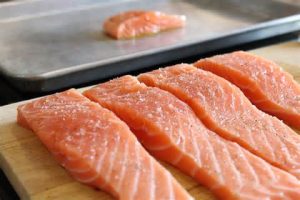Posted on January 17, 2017 by Jenny Cromack
Instead of a recipe packed full of protein, good fats and complex carbohydrates I thought I would dive a little deeper and tell you why we want you to make sure every meal includes these key factors. Let’s start with the macro-nutrient that gets overlooked when it comes to weight loss and over scrutinised when it comes to muscle building – PROTEIN.
This blog looks at how to optimise your protein intake and achieve the best results you can. Plus there are some tasty recipes at the end for you to enjoy!
So we are all on the same page lets list some food portion sizes so we know how much actual food we are talking when I mention a specific amount of protein.
Every 1g protein provides 4 kcal of energy.
28g of lean beef- 8g protein
Chicken breast – 23g protein,
1 egg – 6-7g protein (depending on size)
170g of kidney beans – 8g protein,
1 tbsp of peanut butter – 4g protein (make sure you use organic!)
170g of low fat cottage cheese – 13g protein
350g of rice – 3g protein
Large carrot – 1g protein
Banana – 1g protein
Medium apple -1g protein.
This list is of foods and their protein value, not a list of recommended protein filled foods. For good sources of protein stick to meat, poultry, fish, dairy products, eggs and nuts and you won’t go far wrong.
Why am I writing about protein? wWy is protein so important to be healthy and improve our exercise and performance?
The main focus of protein centres around our musculoskeletal system and a key function is allowing the human body to adapt, this can be adapting to resistance training or it can be recovering from injury. Protein is also a vital source of energy, a process known as protein turnover provides extra energy when not enough food has been ingested. If we wanted to get even more ‘science-y’ then I would tell you about how important proteins are to the structure of cells, transport throughout the body and the positive effect on our hormones…but let’s not get into that now.
Now you know why protein is useful to us, the next step is knowing how much to consume. The true answer to this is it varies depending on our body mass and your goals. Here are some of the basic categories you may fit into to.
Weight loss – mainly endurance training – 1.2 to 1.4 grams of protein per kg of body mass.
Weight loss – mainly resistance training – 1.6 to 1.7 grams of protein per kg of body mass.
Muscle gain through resistance training – 1.6 to 2.0 gram of protein per kg of body mass (anything above 2g has been found to be pointless).
Although amount is very important it is not the sole factor you should considering when eating protein, there are serval different types of protein and some are much better for you than others. Some of the top scorers are the protein in beef, eggs, milk and beans. Generally dietary animal proteins are considered to be complete proteins, whereas proteins from vegetables are incomplete. This doesn’t mean only eat these foods, especially beef due to some other less healthy issues with red meat, but you can lean towards these foods pre and post workouts.
When planning your meals and food shop for the week ahead, try to consume an adequate quantity of protein for your daily needs. Hopefully some of these points will help you do this.
Here are some high protein recipes for you to enjoy too:
http://www.m8north.co.uk/blog/high-protein-2/
http://www.m8north.co.uk/blog/healthy-protein-recipes/
http://www.m8north.co.uk/blog/high-protein/


